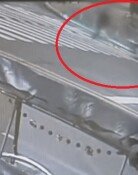Lee dominates DP primary; PPP’s race remains unsettled
Lee dominates DP primary; PPP’s race remains unsettled
Posted April. 29, 2025 07:37,
Updated April. 29, 2025 07:37
Lee Jae-myung of the Democratic Party of Korea secured the party’s presidential nomination with an overwhelming 89.77% of the vote, marking the highest primary victory margin for any candidate from South Korea’s Democratic Party since 1987. Although it was widely assumed from the outset that Lee would win, earning him the nickname “Eodaemyung," he maintained an unusually cautious approach throughout the two-week campaign, resembling a senior manager quietly awaiting an executive promotion.
Lee minimized public appearances and avoided direct interactions with reporters to preempt potential controversies. While he made at least one new policy proposal each day, these were exclusively announced via Facebook posts rather than public speeches. Most of these were presented by lawmakers supporting his campaign, leaving voters with little opportunity to hear Lee’s thoughts directly. As a result, the messages often came across as vague and generic, resembling something written by AI like ChatGPT.
Lee also carefully sidestepped the most contentious election issues, such as nuclear energy, real estate, and the stock market. He emphasized the need for a stable electricity supply to support AI industries but avoided clear answers on the construction of new nuclear plants. He promised a fourth phase of new towns but failed to provide details on locations or timelines. He pledged to raise the KOSPI index to 5,000 points but gave no concrete plans or deadlines to back the claim. Even during three rounds of televised debates, Lee mostly relied on abstract, Confucian-like platitudes rather than engaging in substantive exchanges.
A Democratic Party official explained that there was no need for Lee to expose himself too early and risk damaging his image. The campaign emphasized that despite Lee’s low profile, his support ratings continued to rise, portraying his “strategic silence” as a calculated move to avoid risk.
If the Democratic Party’s primary can be summed up as “Lee’s cautious self-preservation,” the ongoing People Power Party (PPP) primary could be described as a “zero-sum competition that harms everyone involved.” As the PPP race progresses, public confidence in its candidates seems to deteriorate.
What began as a debate about whether one would prefer to be reborn as a cockroach or a piece of garbage has devolved further into petty insults about straight hair and platform shoes. Even now, the candidates remain bogged down in trivial quarrels about their relationships with former President Yoon Suk Yeol, unable to move beyond the political influence of Yoon.
While the PPP contenders have failed to offer any meaningful vision for the future, they have all hastened to express their support for Acting President Han Duck-soo, seemingly as a desperate bid for political survival. Much like the party’s previous mistake of recruiting an inexperienced prosecutor for president, it once again seems to be turning to outsiders rather than cultivating internal talent. There appears to be little reflection on why a new presidential election was necessary only three years after the last, and even less sense of responsibility as the former ruling party.
The 20th presidential election, in which Lee and Yoon competed amid a series of scandals, was widely regarded as the most unappealing election in South Korea’s history. If Lee continues to play it safe—aiming only to clinch the presidency—and PPP candidates continue to stumble, offering no real alternatives, the 21st election may very well end up being just as unappealing. What voters urgently need now are not empty slogans or evasive tactics, but clear, concrete answers on how these candidates plan to resolve the current crises.







